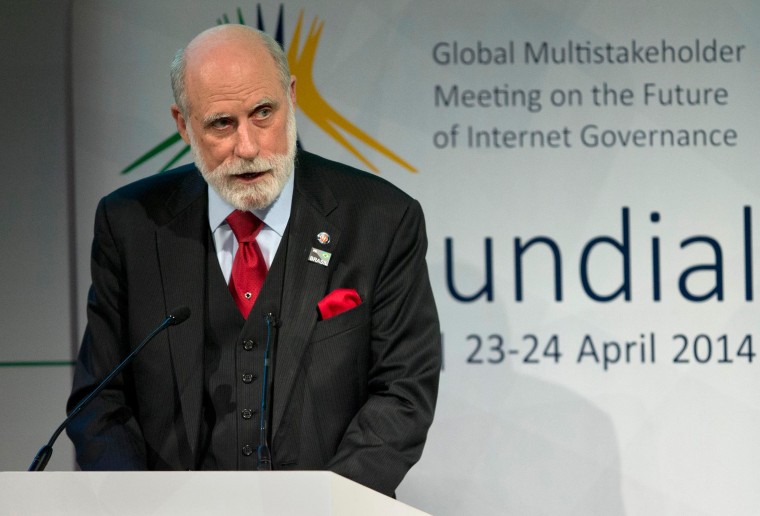The man recognized by some as the “father of the Internet” warns that decades of digital documents could go poof, leading to a “forgotten generation” unless new forms of preservation are developed.
Google vice president and Chief Internet Evangelist Vint Cerf said that the same digital technology that has made information from family photos to government files accessible around the globe could give in to “bit rot” as the hardware and software they rely on changes.
“When you think about the quantity of documentation from our daily lives that is captured in digital form, like our interactions by email, peoples’ tweets, and all of the world wide web, it’s clear that we stand to lose an awful lot of our history,” Cerf said at a meeting of the American Association for the Advancement of Science in California, according to The Guardian. “We don’t want our digital lives to fade away.”
"If there are photos you really care about, print them out," Cerf told the newspaper.
Cerf isn’t the first to raise the alarm on how the bits and bytes that record lives in the 21st century –- including Facebook photos, emails and diary-style blogposts -– stand to vanish far faster than, say, the cuneiform tablets the ancient Sumerians used. Not to mention the box of Polaroids that funky uncle kept from his post-college surf safari.
“All the evidence says that the way things survive is that people care about them and use them and reuse them and keep them alive,” James J. O’Donnell, university librarian at Arizona State University and former Georgetown University provost, told NBC News in an email.
“We have the published ‘Deeds of Caesar Augustus’ that Augustus carved in stone and bronze and set up all over the Roman empire –- so it can survive; but most of the copies he set up were long since destroyed,” O’Donnell said. “In other words, no matter what you do at the outset, if following generations don’t care, it’s a mess.”
IN-DEPTH
- Why Your Digital Photos Might Die Before Your Grandkids See Them
- MySpace Attracts 51m Users a Month, Thanks to 'Throwback Thursday'
--- Matthew DeLuca
